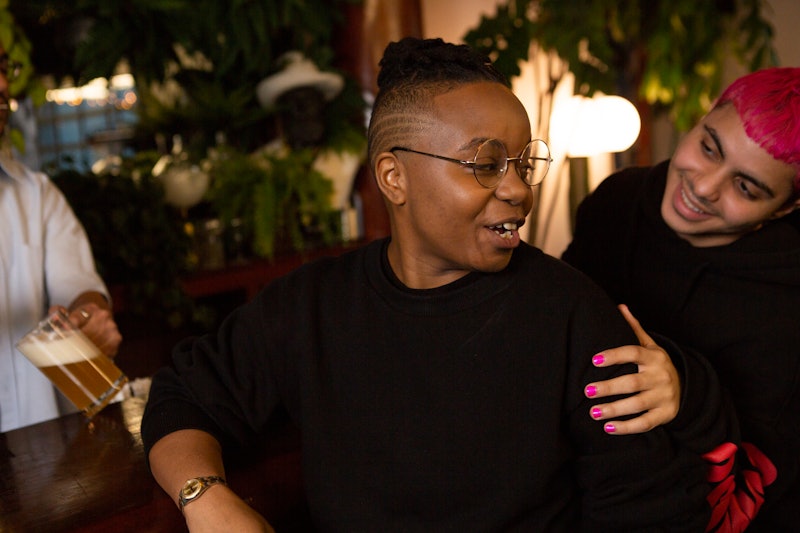
While the majority of Americans are familiar with gender-neutral pronouns, far too many still feel uncomfortable using them. Since the world makes it challenging enough for them, it is crucial that we learn how to support friends, family members, and colleagues who identify as non-binary. Here are five simple ways to show that support, inspired by Jay Polish at Bustle:
1. Use the right pronouns, no questions asked.
And don’t stress if you make a mistake once in a while—but if you do, try not to draw a bunch of attention to it. This makes everyone uncomfortable. Instead, correct yourself and move on with conversation like you would with anyone.
2. Use the right name, too.
Like with pronouns, if your friend has assumed a new name, just go with it. If you accidentally use their “dead name,” simply correct the mistake and try to get it right next time.
Show some extra support by reminding your friend that you are and will always be happy to use whatever name they prefer.
3. Be curious, not intrusive.
Your friend is probably answering a lot of questions about their identity right now. Don’t pile on, but do let them know that you fully respect the decision and are always open to learning more about their ideas and preferences.
4. Do your homework.
Even better than asking your non-binary friend to explain things to you is doing some research yourself! There are countless books, blogs, and social media follows to bring yourself up to speed on Gender Identity 101.
5. Be thankful.
Coming out can be scary. Be thankful you get to be there for someone taking that step. By opening up to you about this journey, they are letting you in on something very special. Use the opportunity to learn, grow closer, and celebrate.
Public Allies is Leading for Diversity, Equity, and Inclusion
As the demographic makeup of our country continues to change at an unprecedented pace, it is more important than ever that we prepare people with diverse perspectives and experiences to lead the way for social, economic, racial, and gender equity. Such diversity and inclusion has always been a fundamental part of Public Allies’ DNA. Each year, our AmeriCorps apprenticeship program cohorts reflect participation and engagement from communities that have historically been underserved and underrepresented, with 80% identifying as people of color, 60% identifying as women, 25% identifying as LGBTQ+, and 5% identifying as non-binary.